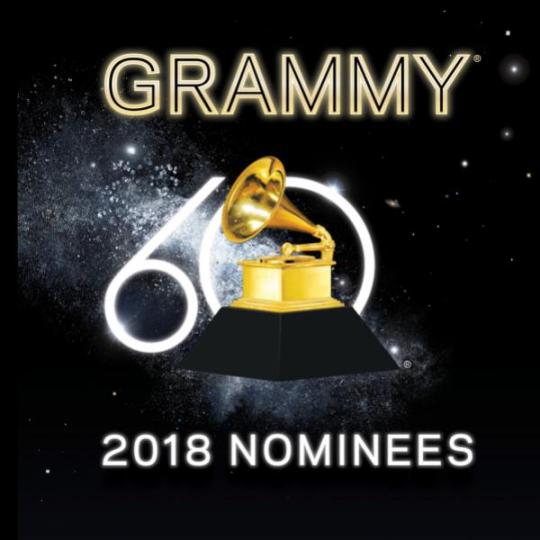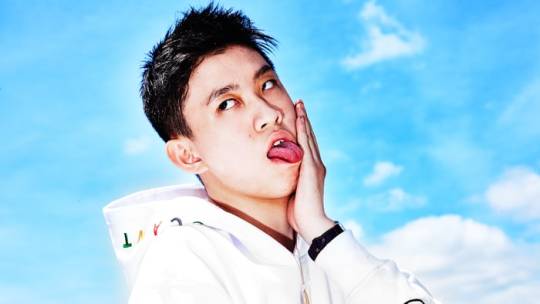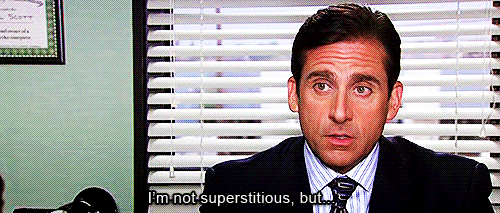#generasian

So, the 60th Annual Grammy Nominations were announced yesterday morning, and somehow it left me with more mixed emotions than I’ve felt in a long time. On the one hand, we have many reasons to celebrate this year–the 2018 list of nominees is the most diverse group in all of Grammy history, especially when it comes to Black and LGBTQIA inclusion. Jay-Z, Childish Gambino, Kendrick Lamar, and more were all (deservedly) nominated for record of the year. Kesha and Lady Gaga were both nominated for two Grammys each, and out songwriter Justin Tranter was nominated for his first award as well.
When it comes to inclusion in the entertainment industry, we’ve come a long way, and these nominees are just one example of that. Unfortunately, this progress has not been reflected within the Asian American community, as you can clearly see by the lack of Asian nominees for the 2018 Grammys. I can’t say I’m surprised, considering there aren’t really any huge Asian American names in the music industry. But it’s not because we’re not trying–it’s because those who run the system aren’t listening.This year I got the chance to discover Alice Gao,Niki Zefanya,Yaeji, and several other incredible Asian artists whose music deserves recognition–but none of them are getting the attention they deserve.
While Grammy nomination entries can by submitted by any artists/record companies with commercially released music, all submissions are reviewed by a group of over 350 experts in the fields of jazz, R&B, rock, classical, new age, and more. These experts within the Academy go through several rounds of screening, being advised to vote in up to 15 categories in their areas of expertise as well as the 4 general categories (Record of The Year, Album of the Year, Song of The Year, and Best New Artist). Unfortunately, if you are a lesser known artist in the US (aka most Asian American artists) signed to a label with more well known artists, your label will most likely submit their song/album to be considered for Grammy nomination over yours. At the end of the day, it’s pretty much a self fulfilling prophesy. Since Asian American artists are almost never well known enough to qualify for the final rounds of nomination, their work is not often submitted. As a result, Asian Americans are continuously left out of the mainstream. The whole thing is a cycle that seems to have no end.
Don’t get me wrong, I believe we should celebrate the victories we achieve, but I’m honestly so tired of writing and complaining about Asian American representation. You guys have heard it all before and I’m not here to preach the same message all over again, but my soul is tired y’all. While we should celebrate and cheer on our fellow POC, let’s remember that the entertainment industry is still far, far, from being the all inclusive community that we so desperately need.
Image via grammys.com

You may not have heard of 88Rising, but you’ve probably listened to Dat$tick by Rich Chigga at least once or twice; well, the label behind Rich Chigga’s creative genius is 88Rising, an NYC based music label founded by Sean Miyashiro.
Over the months, 88Rising has gotten more and more spotlight—not only for curating incredible music, but also for giving Asian artists some of the attention they deserve. When Dat $tick went viral, Rich Chigga got the stamp of approval from tons of US rappers, such as Migos, 21 Savage, and more. From there, things have only gone up.
88Rising partnered with The Higher Brothers, a Chengdu based rap group who is breaking barriers in a musical and physical way. Because they don’t have direct access to YouTube in China, they have to work extra hard to interact with their fans, but they do it because it’s all worth it. They have a true appreciation for rap culture that transcends geography and language; for their fans it’s about the flow, the delivery, and the charisma.
88Rising’s Sean manages all of these artists and more, not just because they’re Asian, but because he believes in their music. He told Pitchfork, “Real talk, from a music perspective, if I don’t fuck with it, just ‘cause it’s from the Philippines, I’m not gonna put it up. I think that 1000 percent of the time, the music needs to be good.” And his philosophy shows, too. They recently debuted Indonesian singer NIKI, an R&B artist whose style is characterized by smooth and heavy beats. She’s young, but her potential is definitely there.
In many ways, 88Rising is exactly what the Asian community needs. They obviously want to bring attention to the real talent thats brewing all over Asia, but more than that it’s also about putting out music that’s truly worthwhile. In that way, they’re paving a way for Asian artists to be taken seriously in the music industry. Check out the video below to see some of our favorite rappers reacting to the Higher Brothers and click here to see more of 88Rising’s YouTube content.
No, I am not American, I’m from Hong Kong. But yes, I do know how to speak English. My Asian appearance and profile probably threw you off there, as you were probably expecting me to sound “international”. Within less than a week of college, I have had to explain to numerous people why don’t I have an ‘accent’ — well, what they consider an ‘accent’, that is.
I don’t have an “accent” because I learned English my whole life and was taught by American/British teachers. But I mean, isn’t an American accent still an accent too? It seems that someone who speaks with correct grammar and vocabulary can be judged based on their foreign sounding vowels. Sometimes, I wonder whether I should take it as a compliment or an insult when I get comments on my ‘lack of an accent’.
There seems to be a common misconception that if you don’t come from the West, you must speak broken English. Yet, it’s hard to judge one’s language ability based solely on where they’re from. In fact, Hong Kong was a British colony for over 150 years, which makes English one of the official languages. Thus, not knowing the history and culture of a place unfamiliar to you and making baseless comments can make you look ignorant.
Sometimes, we think we’re complimenting someone without realizing the superficial assumptions that we are making. With that, I want to encourage you to step out of your personal bubble of thoughts and think about the implications of what you’re about to say–even if you think it’s a compliment. After all, our perceptions of truth may not always be true, and the last thing we’d want to do is to offend anyone when we never intended to.
Reaching back to the late 1500s, Generasian has collected and made accessible a visual representation of some of the important events crucial to the Asian-American identity.
What is whitewashing? How did the controversy surrounding Ghost in The Shell affect its box office reel?
My mother’s homemade Chinese cuisine is always the best, unless it was for lunch. Somehow, packing it in a lunch box and bringing it to school just diminishes it’s value and makes it weird. Yes, WEIRD, as my classmates would describe: the weird shaped dumplings that my mother would hand make from scratch, the weird colored noodles that she would stay up to prepare the night before, the weird smelling fried rice that she would carefully cook for just the right amount of time… While everyone else was enjoying their pepperoni pizza or cheese burger, talking happily amongst each other, I always sat in the corner, where no one would pay attention.
“Eww is that dog food?”
“No you can’t sit with us.”
…

I hated being the girl with the weird food. The more my classmates commented on my food, the worse it tasted, as if others’ glares on my lunch could transform the food from delicacy to trash. I begged my mom to pack me something else. I told her the food was horrible. I begged for her to sign me up for school lunch. She was confused, thinking that I disliked her cooking, but also seeing me gorge down dinner like it was the best thing on earth, which it was. She didn’t question me, but agreed to my request.
Finally, I got the same plates as everyone else. I got the same food as everyone else. And I got to sit at the same table with everyone else. School lunch was so much better! It looked better, it smelled better, and it tasted better. I could finally eat the burnt bread, the unevenly heated frozen pizza, the artificially flavored meatballs. I thought I was the luckiest kid on earth.
Until now…
Time flies and in a blink of an eye, I am not an elementary school kid anymore. I’ve set off to college, away from my family, to a new place where I would have to be on my own. Only now, do I realize that the most precious meal, is the lunch box that my mother would pack. Not only do I miss the delicious food, it is also the taste of home, of family.
I longed for my mother’s cooking, for the taste of home. I tried to replicate her dishes, but they will never be as half as good. I want to yell at my seven-year-old self, to make my younger self realize what a luxury it was to eat the “weird” food.
Sometimes my friends bring meals from their home to school after breaks or holidays, and we would all gather around to admire how delicious the food is. Despite not being a cuisine we’ve ever seen or even heard of before, the strong flavor and rich taste always leads to “MMMMs” and food dances. It’s different, not weird, it’s distinct and unique.
Instead of running away from what other’s may perceive as “weird”, we should all embrace our identity, our culture, our family traditions, before it’s too late. And as outsiders, we should stop judging what we may not understand. The world is a diverse place, and let’s all help keep it that way.
This post was inspired by the video created by NBC Asian America.
Have you ever read your fortune cookie slip and thought “Where on earth does this kind of thing come from??” There are many Chinese superstitions that don’t make sense, but if so many people believe in them, doesn’t it make you want to know what they are? Chinese culture has a strong emphasis on superstitions which often influence a person’s daily life. It’s fair to assume that luck and wealth are a common concern for Chinese people, so it’s not surprising that many of these sayings have to do with that. None of these are scientifically proven, so just take them light-heartedly for a enjoyable mid-day read.
1. Twitching on the left eyelid forecasts fortune; twitching on the right eyelid forecasts misfortune.

You’ve probably experienced your eyelids twitching and wondered why. This superstitious saying has become ingrained into many Chinese people’s minds. If it’s your right eyelid, be careful of a small misfortune that might happen soon. But if your left eyelid twitches, smile and know that you’re about to receive some money.
2. You lose wealth when you shake your leg.

This is one of many examples from the Chinese Feng Shui belief. Many find it stress-releasing to shake their legs, but according to Feng Shui, you’re losing your fortune whenever you shake your legs. If you wanted to get rid of this habit but find it hard to, think about your bank account and this Chinese saying. It just might help.
3. Sometimes it’s better not to give.

Watches. This has to do with the pronunciation of the word “watches” in Chinese. It’s considered ominous to receive a watch on one’s birthday, since “gifting a watch” sounds similar to “sending off the dead” in Chinese. Both are pronounced “Song Zhong”.
“Umbrella” and “lose/fall apart” also sound alike in the Chinese language (“San”). It’s considered inappropriate to gift an umbrella to a friend or significant other, which insinuates that your relationship will fall apart.
4. The unlucky number 4.

The number 4 in Chinese is homophone for “death.” Thus, just like Americans’ attitude towards the number 13, Chinese skip level 4 in their buildings and avoid the number 4 in their lives.
Similarly, 8 is the lucky number since it sounds similar to “fa,” which means to be prosperous.
5. Stepping on manhole covers will cause misfortune.

My deepest fear of living in New York is that one day I’ll fall through the basement entrances covered by two thin iron boards. But here’s an excuse to being scared of those – some Chinese believes that manhole covers are soaked with evil spirits and stepping on them lead to bad luck.
6. One should wear red during one’s “ben ming nian” (本命年)

Like the western 12 astrology signs, China has 12 sheng xiao(生肖)or animal zodiac signs, according to the Lunar calendar. The year of your animal zodiac is called your “ben ming nian”(本命年). Red is believed to be a jubilant and auspicious color. Thus wearing red during one’s “ben ming nian” is a long-kept tradition that is meant to make the year particularly prosperous. Think about it as an all-year-long Christmas.
2017 is the year of Rooster. Find out what your animal zodiac is here.
On the heels of whitewashing accusations of Netflix’s Iron Fist, a new trailer has been released for the adaptation of popular Japanese anime Death Note. Generasian dives deep to analyze public opinion
Chinese American food has continually evolved in New York City and East Village’s new restaurant, The Tang, is no exception. We talk with The Tang’s Eric Sze about fusion Chinese food and try out some noodles! Special thanks to Eric for taking time and talking to us.
Eat ZhaJianMian here
https://www.yelp.com/biz/the-tang-new-york
Music by bohkeh - Sky ft. Baechel
https://soundcloud.com/boh-keh/sky-ft-baechel
Produced by Megan Liao
Shot by Sarah Hahn, Monica Mai, and Jeffrey Wu
Edited by Joyce Lee
Read Generasian’s publication
https://issuu.com/generasian
Read Generasian’s blog
generasian.org
Japan and United States has been inextricably linked ever since World War II. Their back and forth cultural dialogue is present in many different aspects of society like fashion, film, and music. The most recent incarnation of such discussion is the sukajan or souvenir jacket. Generasian explains how the trend recently resurfaces
Read Generasian’s publication
https://issuu.com/generasian
Read Generasian’s blog
generasian.org

The recent film “The Great Wall” starring Matt Damon was released in theaters just a couple of weeks ago, and while I admittedly have not seen the film, the trailer and film poster alone raised a series of red flags and questions in my head. For those who have not heard of the movie, it basically tells the story of a warrior in China who joins a team of elite soldiers to help defend the Great Wall.
I think this film speaks volumes on the state of Hollywood today and also exemplifies exactly what Asian actors are trying so hard to fight against in the entertainment industry - whitewashing and the white savior narrative. The film is directed by one of China’s greatest directors, Zhang Yimou, and features several A-list Chinese celebrities including Andy Lau, Eddie Peng, and Lu Han. Additionally, the film was shot on location in China and supposedly tells the story of China’s might and power. It’s interesting then, to see that Matt Damon is the lead of the film, the “white savior,” and the only person featured on the film’s widely advertised movie poster.
When the film trailer was first released, it immediately sparked outrage, but Matt Damon defended himself by saying that he did not take the role from a Chinese actor, nor was the role altered for him in any way. He also insisted that critics were jumping to conclusions based off of the trailer without having seen the film, and it makes their views less credible. While all of this may be true, it does not change the fact that there is a very obvious placement of a white character where a white character does not belong. Additionally, this character plays the most important role in the film and is highlighted (based on the trailer) as being more essential than the rest of the characters. In fact, Matt Damon is the only actor that has any speaking lines in the entire trailer, even though several other Chinese actors are stated to have leading/crucial roles in the film.
There are so many different elements here that display Hollywood’s rejection of non-white actors and it makes it hard to believe that there has been any progress made. The white savior narrative, the whitewashing, the trailer, the promotional photos, and more, all point to one thing - Hollywood doesn’t believe that Chinese actors are marketable. At the very least, Hollywood believes that White actors are the most marketable, the easiest to sell, and perhaps the easiest to relate to. But this self perpetuating philosophy confines Asians in the entertainment industry and guarantees that no progress can ever be made. People sometimes wonder why so few Asians show up at award ceremonies like the Oscars, but the truth is simply that Asian Americans are never granted the opportunity to play Oscar winning roles because they are too often seen as a “niche” market or as “too exotic” to be front and center.
While minor progress has been made, such as the writing of the film “Crazy Rich Asians” and the popularization of the TV show “Fresh off The Boat,” we have yet to see the integration of the Asian community in the entertainment industry and Asian actors remain very much a niche group. So while hope ultimately prevails, Hollywood still needs to make great strides before genuine diversity can be reached.
If you’re more interested in learning about the Asian American’s role in Hollywood today read this article from the NYT: https://www.nytimes.com/2016/05/29/movies/asian-american-actors-are-fighting-for-visibility-they-will-not-be-ignored.html?_r=0
Matt Damon article: http://www.huffingtonpost.com/entry/matt-damon-wants-you-to-know-he-didnt-steal-a-role-from-a-chinese-actor_us_58473eaee4b0b9feb0da1d06
